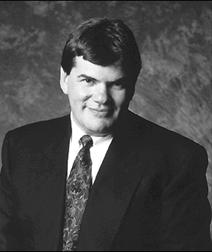A Quote by Peter Drucker
Above all, innovation is not invention. It is a term of economics rather than of technology.
Quote Topics
Related Quotes
Generally, the technology that enables disruption is developed in the companies that are the practitioners of the original technology. That's where the understanding of the technology first comes together. They usually can't commercialize the technology because they have to couple it with the business model innovation, and because they tend to try to take all of their technologies to market through their original business model, somebody else just picks up the technology and changes the world through the business model innovation.
But innovation is more than a new method. It is a new view of the universe, as one of risk rather than of chance or of certainty. It is a new view of man's role in the universe; he creates order by taking risks. And this means that innovation, rather than being an assertion of human power, is an acceptance of human responsibility.
Anyone who has studied the history of technology knows that technological change is always a Faustian bargain: Technology giveth and technology taketh away, and not always in equal measure. A new technology sometimes creates more than it destroys. Sometimes, it destroys more than it creates. But it is never one-sided. The invention of the printing press is an excellent example. Printing fostered the modern idea of individuality but it destroyed the medieval sense of community and social integration.



































